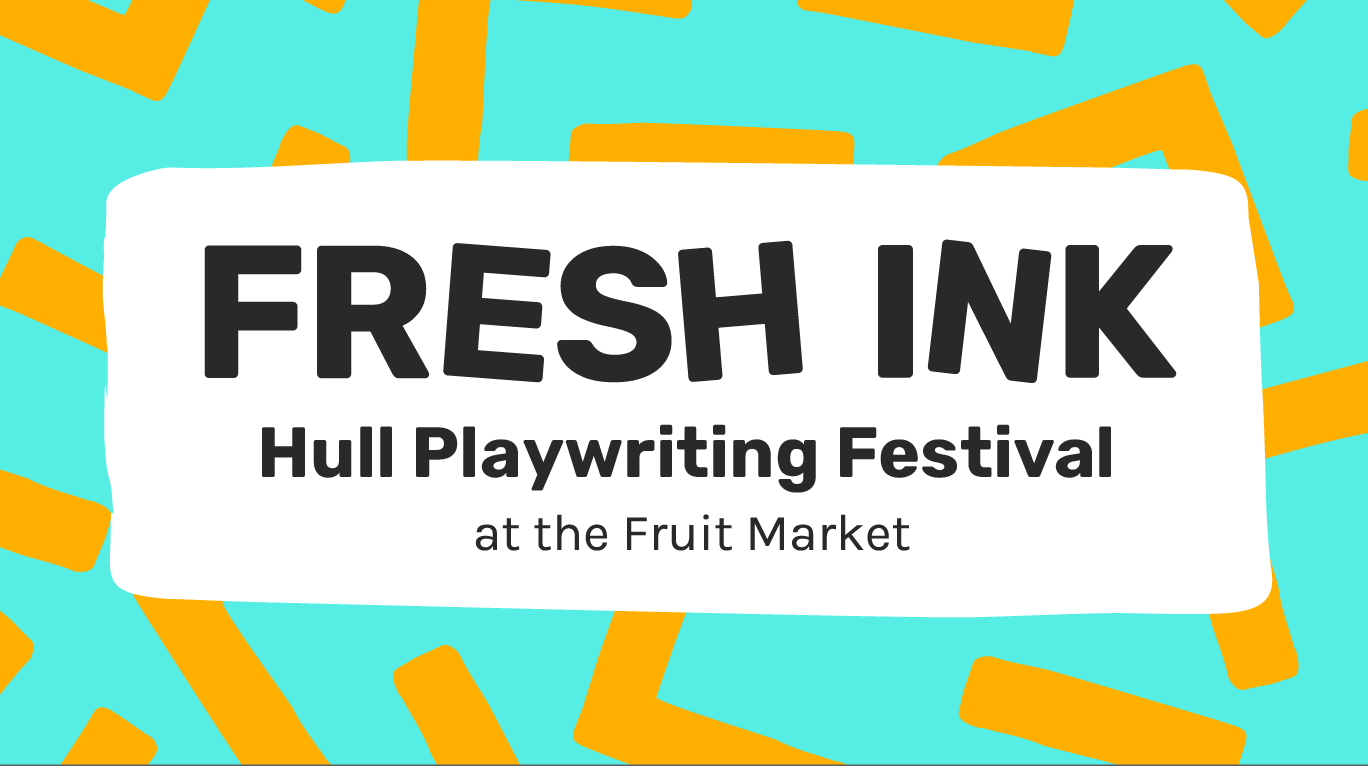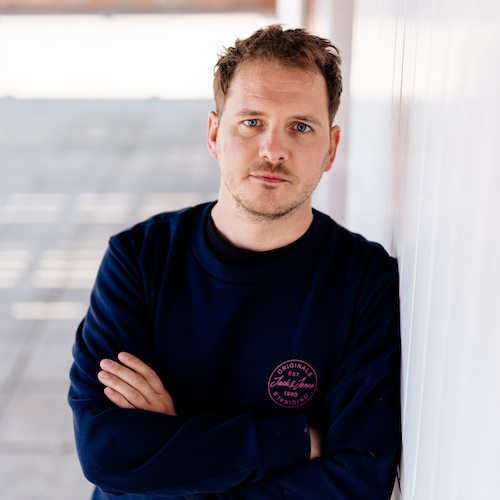Middle Child literary manager, Matthew May, explains the process of finalising our six writers commissioned for Fresh Ink, an exciting new playwriting festival coming to Hull this summer

Fresh Ink hits the Fruit Market on 20th and 21st July 2024
I’m so chuffed that today we get to announce the six writers we’ve commissioned for our first ever Fresh Ink Hull playwriting festival. The talent and stories that are represented by these writers is incredible and I’m so excited that we’re going to share their work with you all in July.
This blog post is to try and make clear how we got to that final six. It’s written so those that applied can have clarity on what we did with their applications, also for those writers who didn’t apply but might in the future, and for those who may never apply but just want to know what happens after you’ve applied for a scheme like this.
We think it’s really important that we talk about the process in public, because we know right now it’s incredibly tough out there for all artists, but particularly writers. New commissions are down across the board and we want Fresh Ink to feel like a positive thing for writers, not just another thing you apply for, only for all the time, effort and energy you spent to disappear into a black hole, where you have no idea of the process or the outcome.
Of course, all the transparency in the world isn’t going to make rejection not suck. It definitely does suck. It sucks that for all the amazing applications we received, we were only able to support six. We hope in the future that number will be able to grow, but right now this is all we can afford to offer. We are however aware that this is just a drop in the ocean of what is needed.
First up, let’s talk about the numbers. Fresh Ink had six commissions to offer. The application consisted of a couple of questions about the idea each applicant wanted to write and how they could demonstrate a relationship to Hull. Writers also had to include up to ten pages of some of their writing, but not necessarily the script they were applying with.
In total we had 130 applications. That number is exciting and shows that there is a real wealth of writing talent connected to this city. In particular, given that our most-applied-for commission was the 30-minute option, which was only open to writers who had never had a play professionally produced, it speaks to a desire for opportunities for those who maybe haven’t had the chance to write yet. The full breakdown of applications is below.
| Commission Length | Criteria | Number of Applicants |
| 70 Minute | Must have had a play professionally produced | 33 |
| 30 Minute | Must not have had a play professionally produced | 60 |
| 15 Minute | Open to any experience to try something new | 37 |
The obvious downside to these numbers is that there is a lot of writers here and six commissions. Hopefully though, these numbers can help make the case that we need more. The reason this festival is happening at all is because Wykeland approached us to find a way we could collaborate to support and develop artists in this city, and without their generous funding and that of the JF Brignall Trust and I AM Fund we wouldn’t be able to commission or support anyone.
If reading this has inspired you and you happen to run a business, you’re a super wealthy generous person, or a funder who’d like to make a difference, then do get in touch, because we’d love to be able to showcase more than 4.6% of the people that applied.
This next bit is about how we got from 130 to six.
None of this is to say this is the perfect way, or even the right way – it’s the way we’ve done it this time and it’s worth bearing in mind that this year is a pilot of Fresh Ink and inevitably things will change from what we’ve learned. If you have any thoughts on ways we can improve this process then do get in touch.
Submissions closed at the beginning of January and then I spent the month reading every application. Whenever we hold any sort of open call I am always blown away by the quality and variety of stories that we receive, and this was a fantastic example of that. There were so many interesting, unusual, and important stories that writers were passionate about telling and spoke about with such character and heart. It was honestly a privilege to get to read them all.
Once I had read them, I created a longlist of about ten ideas for each commission. The bulk of the decision was based on the application form. Could I get a real sense of the idea from the way the writer speaks about it, not so much the details of it, but the feel of it, and why this writer needed to write this thing? Also, how would this story sit in a festival of new work down at Stage@TheDock?
The extracts that we asked writers to provide were used as a way of confirming (or not) my sense of a writer. Does what the writer wants to write about, and how they speak about it, match up with how they write? And of course, do we think this writer is ready for this opportunity?
The obvious criticism of this process is that one person, me, gets to make the decision about the bulk of the applications. I agree that’s not ideal. I think the upside to that is every application gets read by the same person, with the same care and attention, while I can also see how every application relates to the rest of the submissions. It would however be ridiculous of me to claim that there aren’t flaws in that system: I obviously have my own theatrical tastes and preferences and my own lived experiences, and these, however subconsciously, will inevitably shape what the final list looks like.
It would be great to bring on board a reading team to make sure that we have a wider range of voices feeding into the process from the very beginning, but to afford to do that we’d have to reduce the number of commissions. That might be the right way to go, but this year we opted to give out as many commissions as possible and accept that the long-listing process will rest solely with me.
Festival steering group
Once the longlist was finalised, Middle Child’s artistic director Paul Smith and I looked through them all and created a shortlist of six for each commission. At this point we presented the shortlisted ideas to the steering committee. This committee was made up of freelance writers, artistic leaders within the city and key stakeholders of the Fresh Ink festival. The full list of who was on the committee is here:
- Kate Allan – J F Brignall Trust
- Mark Babych – Hull Truck Theatre
- Jan Brumby – For Entrepreneurs Only
- Natalia Cleary – Wykeland
- Maureen Lennon – Freelance writer
- Gordon Meredith – Freelance writer and actor
- Chris Tonge – Middle Child Trustee and local businessman
- Tom Wells – Freelance Writer
- Louise Yates – Back to Ours
Each idea was discussed on its merits, but also with a view to creating an exciting festival that told a diverse array of stories. Hull was also really at the heart of a lot of the conversations. This festival is about championing the creativity in this city and telling stories about us that maybe we haven’t heard before.
The final decisions were made by votes, often incredibly close votes. Each member of the committee had two votes for each level commission and in the case of ties the committee voted again on just those applications.
Paul and I didn’t get a vote. Having created the shortlist we felt it was important that, at this stage, we limited our say in the decision making. This felt particularly important when Hull has a relatively small, close-knit artistic community. Inevitably we were going to know, professionally and personally, some of those that applied and we felt one of the big benefits of having an independent steering committee was mitigating this risk. Conflict of interest was still the first thing we discussed, with each committee member declaring any existing relationship with all the shortlisted writers, to ensure full transparency.
After the festival started to emerge from the votes, we looked at the festival as a whole, and occasionally revisited decisions to make sure that the six commissions worked well together to create a single festival. That is how we ended up with the six amazing writers that we’ve announced to you today.
Feedback
After the decision was made, I emailed every writer who applied to inform them of our decision. From the outset we’d said we wouldn’t do individual feedback for unsuccessful applicants. That was for a few reasons. Firstly we only got to read a short extract of each writer’s work, which means that the feedback that I could offer would be limited. To be honest though, we weren’t sure that an email with a few notes in it was the best way to support unsuccessful applicants anyway. Instead, all applicants who weren’t successful were invited down to our space for a cuppa and a chance to hear about what we’re up to, how writers can get involved with Middle Child, and to chat to us and each other.
I’m not going to lie, I was incredibly nervous about this idea. I felt it could work, but as it came closer I did start asking myself how smart it was to invite 120-plus people who we’d just rejected to come and hang out with us? We had about 30 attendees and it was honestly lovely. It was great to get to know so many writers who I hadn’t met before and talk to them about what they wanted to create. I really hope it felt beneficial for those people who attended too.
So that’s how we got from 130 to six. My real hope though is that it’s not just six. It’s that some of those 130 get involved with our other writing programs, or with Hull Truck’s or Back to Ours’ or Silent Uproar’s or any of the other great writing opportunities there are in the city. And that lots of them apply again next year and we can continue to grow the amazing talent pool of writers that already exists in Hull. And in growing it, more companies choose to put money in to support writing in this city, until we can support far more of the wonderfully talented people who applied and Hull can become a real champion of playwriting across the country.
But right now, we have this summer’s Fresh Ink festival to get excited about, and you should be excited. Six amazing playwrights. six gorgeous stories. What better way to spend a weekend?
Here are some of the ways you can support our work to change who gets to make and enjoy theatre in Hull:
- Buy a ticket, when they go on-sale in June
- Join our pay what you can supporters scheme, Middle Child Mates
- Tell your friends and family – word of mouth is by far and away our most effective marketing tactic, but it’s the one thing that we can’t do ourselves
- Fund our work – contact senior producer Sarah Penney if you would like to discuss opportunities

Fresh Ink: Our response to the crisis in new writing
Middle Child artistic director, Paul Smith, writes about Fresh Ink, our new playwriting festival coming to Hull in summer 2024.
